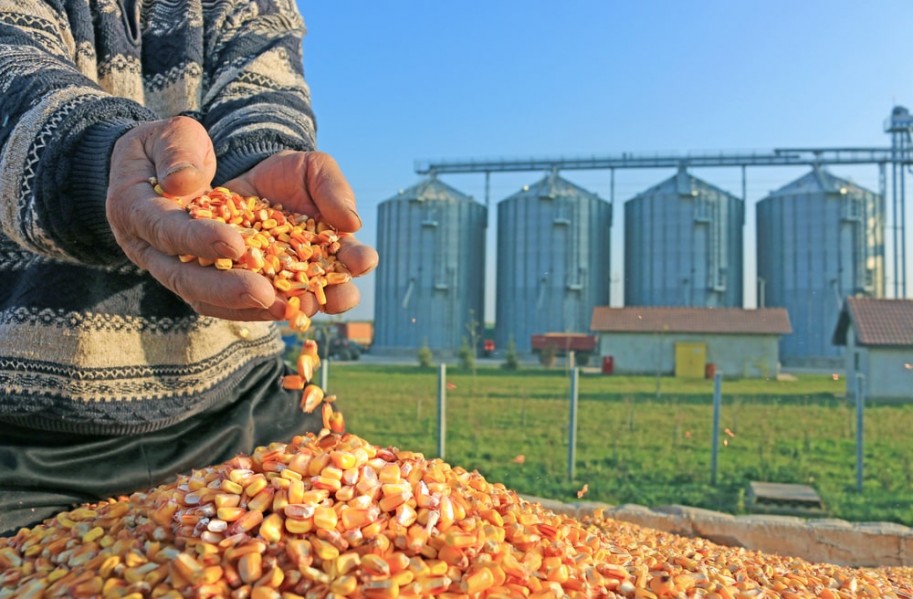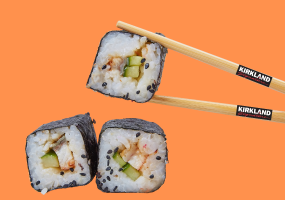
KazSeed, a division of the multi-sector Kusto Group chaired by Yerkin Tatishev, is interested in tackling the issue of poor feed supply, one of the primary factors hampering the development of animal husbandry in Kazakhstan. The company's solution is to offer farmers American-bred high-yield fodder crop seeds.
"In the seed business, a lot depends on reputation," explains Serik Ramazanov, the financial director of KazSeed. "And you can lose it very quickly, in a second. Once you've sold low quality seeds - that's it, no one will work with you."
When it comes to reputation, Edward Baumgartner, the director of KazSeed, his knowledge and experience have made him a leader in the field of seed cultivation.
A third-generation seed breeder, Baumgartner grew up on a family farm in Minnesota, an agricultural powerhouse located in the United States Midwest. He graduated with a degree in agronomy and plant genetics from the University of Minnesota in 1983. Throughout his career, Baumgartner has worked with several large companies that specialize in seed breeding.
In 2005, he founded his own company in Puerto Rico specializing in the research and cultivation of corn hybrids. Baumgartner returned to his native Minnesota in 2013 where he developed his brainchild, Baumgartner Agriculture Science and Service (BASS).
His began collaborating with a Kazakhstan cattle company, Kazbeef, in 2016, supplying the company with corn seeds to produce silage for their breeder herd and feedlot cattle.
A visit to Minnesota
When Kusto Group acquired KazBeef in 2018, Yerkin Tatishev made it a priority to personally meet with all of the company's partners. This meant a trip to Minnesota for the Kazakh businessman to visit Edward Baumgartner and BASS's home base of operation. Tatishev was impressed by what he saw and in August of 2018, Kusto Group and BASS formed KazSeed as a joint venture between the two companies.
KazSeed plays an integral role in Kazbeef and Tatishev's protein strategy which they hope will ignite an agricultural revival in Kazakhstan. Baumgartner is currently preparing to move to Kazakhstan full-time to oversee the development and growth of the company.
Kazakhstan's livestock sector is currently experiencing an increase in growth. Kazbeef has outlined plans to double the size of its own operations. KazSeed's mission is to supply this growing industry with high yield forage crops such as corn, soybeans, alfalfa, sorghum, and millet. To achieve this task, the company will produce high-quality, highly productive seeds that have been specifically adapted to the local climate conditions.
The director of KazSeed emphasizes the similarity of climatic conditions of Minnesota and Kazakhstan as a reason for why the seed genetics developed at BASS will cultivate well in the soil of Kazakhstan.
"You need to use seeds that are designed and grown for specific conditions," says Edward Baumgartner. "Only then will they produce the greatest yield in accordance with production methods, soil and the environment. It is also necessary to take into consideration how exactly the cultivated grain will be used - for feeding cattle of meat breeds or dairy cows, poultry or other animals. Sowing imported seeds without an idea of how they will work in your fields is a very risky undertaking. Yes, Kazakh farmers have become convinced that the genetic potential for yields of imported seeds is higher than most of the available seeds on the local market. Our business model is to develop seeds specifically designed for our customers. We call this 'personalized seed production'."
A market full of potential
The country's current seed supply is inadequate both in terms of quantity and quality. During the first stages of the KazSeed venture, the company will continue growing and processing the seeds it supplies to Kazakh farmers from the United States. The prices - and quality - of the seeds will remain the same both in Kazakhstan and in the US, despite transport costs, with one standard bag of corn consisting of 80 thousand grains costing $175. In the future, the price per unit will be determined individually for each farm, depending on seed type, volume and other relevant factors.
KazSeed will supply seeds to other farmers across Kazakhstan in addition to their cooperation with KazBeef. 20-25 thousand hectares will be sown with KazSeed seeds in Kazakhstan next year - approximately half in KazBeef fields, half in other farms throughout the country who have chosen to cooperate with the company.
For those who choose to cooperate with KazSeed, it is not only about buying seeds, the company will also supply full agronomic support to its clients, providing them with advanced genetics and new cultivation technologies. Edward Baumgartner is confident that through proper agronomy and seeds, the current corn crop yield of 6-7 tons per hectare can realistically be increased to 14-15 tons.
Negotiations are currently underway with the Kazakh National Agrarian University to work with Kazakhstani scientists to train students in the newest technology and best practices in agronomy.
"As a breeder and agronomist, I like to meet with my colleagues," said Edward Baumgartner. "We are committed to cooperating with scientific institutions of Kazakhstan, since our ultimate goal is to improve the agricultural sector in Kazakhstan to ensure food security in the region. This is achieved only through joint efforts."
Better than GMOs
KazSeed is laying the groundwork for an expansion into the country that will culminate in the construction of a plant for processing and packaging seeds in Kazakhstan, in addition to growing seeds there.
The plant is set to be built once the company reaches an annual sales volume of 100 thousand bags. Calculations predict that the company will achieve this milestone in 2023, meaning the start of seed cultivation in Kazakhstan will begin in 2024.
The plant's planned capacity will be 500 thousand units per year, and the equipment will be able to process seeds of various crops, not just corn. The plant will be capable of performing every step of seed processing - cleaning, sorting, calibration, dressing, seed packing. The budget for the project is around $45 million.
When it comes to seed cultivation, the company plans to outsource to farmers, of course with full technological support from KazSeed specialists, which will create lasting partnerships with local farms and provide these farms with a solid income.
KazSeed will also own land in the Almaty region for the cultivation of seeds. The approximate area of 1 to 5 thousand hectares will all be irrigated.
Kusto Group has established a joint venture with US-based Valmont Industries, the world leader in the production of irrigation systems. This partnership will not only include the installation of irrigation systems on their own lands, but also the construction of a plant in Kazakhstan to produce modern irrigation systems. Two circular machines of 100 hectares each have already gone into operation on KazBeef land.
Establishing a Eurasian seed hub
"Despite the fact that in the United States there is strong competition from large companies, we are growing from year to year," said Edward Baumgartner. "And we are confident that we can repeat this in Kazakhstan. Because our seeds are non-GMO, but they are not inferior to them in terms of yield, and sometimes surpass them. We work with large farmers and analyze the results - which hybrid gives more weight for silage, which has the best indicators for the content of proteins or fats. And depending on the needs of each farm, we develop a hybrid specifically for it. We will work here on the same principle."
In looking to the future, KazSeed hopes to extend its sales beyond the borders of Kazakhstan. It anticipates the prospect of supplying seeds to all of Central Asia, as well as entering the nearby Russian market, turning Kazakhstan into the seed hub of Eurasia. Many livestock farmers across the region have already expressed interest in the cultivation of high-yield seed varieties that the company specializes in.
According to Edward Baumgartner, he has already scheduled several meetings to discuss cooperation plans.
"I am flying Mongolia next week," said Baumgartner. "Livestock production there is already at a high level, the livestock is very large, but there are problems with feed. So, we think it is likely our seeds will sell well there. Given Kazakhstan's proximity to major global food consumers, Kazakh farmers have a huge advantage over the rest of the world. Now, we tentatively estimate the seed market in the country at $ 2.5 billion, but in reality, it has the potential to be much larger. However, much work remains to be done to realize this potential. A key area that is important for the successful operation of the seed industry in Kazakhstan is the protection of intellectual property."
* This is a contributed article and this content does not necessarily represent the views of foodworldnews.com









